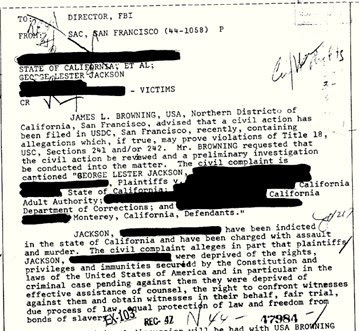Water pressure has been restored in Jackson, but residents of Mississippi's capital still lack safe drinking water and now must contend with the threat of privatization—an idea floated by Republican Gov. Tate Reeves and denounced by critics on Monday.
Although "the risk with respect to quantity of water has not been eliminated, it has been significantly reduced," Reeves said at a Labor Day press conference in the city. "People in Jackson can trust that water will come out of the faucet, toilets can be flushed, and fires can be put out."
While the immediate, flood-induced emergency appears to have been contained, Reeves made clear that when it comes to addressing the Jackson water system's longstanding issues, he is "open" to allowing a profit-maximizing corporation to take over a life-sustaining public good.
"Privatization is on the table," the governor said. "Having a commission that oversees failed water systems as they have in many states is on the table. I'm open to ideas."
The underfunded and understaffed O.B. Curtis Water Treatment Plant is now "pumping out cleaner water than we've seen for a very, very long time," said Reeves, citing local health officials. The governor expressed hope that the boil-water notice affecting more than 150,000 people since July 29 could be lifted within "days, not weeks or months."
"We know that it is always possible that there will be more severe challenges," he added. "This water system broke over several years and it would be inaccurate to claim it is totally solved in the matter of less than a week."
Flooding—made more common and intense by the fossil fuel-driven climate emergency—was the proximate cause of the recent loss of water pressure in Jackson, but disinvestment, the ultimate cause of the city's ongoing water crisis, can be traced back decades.
As Judd Legum noted Tuesday:
The integration of public schools in the 1960s prompted an exodus of affluent whites from Jackson, eroding the city's economic resources. Jackson's declining economic fortunes also prompted the departure of middle-class Blacks, causing an overall population decline. The city went from over 200,000 people in 1980 to less than 150,000 people today. More than a quarter of the population lives below the poverty line. Mississippi is the poorest state in the nation, but Jackson is even poorer than the state as a whole. Per capita income is just $21,906.
But while the city's population and tax base shrunk, it still has 114 square miles of aging water infrastructure to maintain. The state, dominated by Republicans, has been largely unwilling to help a city populated by Black Democrats. In 2021, for example, intense storms left Jackson residents without drinking water for a month. The city asked the state for $47 million in funding for emergency repairs. Mississippi allocated $3 million.
On Monday, Reeves acknowledged that "there are indeed problems in Jackson that are decades old, on the order of $1 billion to fix." The governor failed to mention, however, how the GOP's refusal to provide financial support at the scale required has helped perpetuate the dangerous status quo.
Reeves' privatization proposal, first reported by the nonprofit outlet Mississippi Free Press, was quickly met with condemnation on social media.
"This can't be allowed to happen," tweeted Josh Potash, an educational strategist at Slow Factory, a social and environmental justice NGO. "The response to a water crisis can't be turning the city water supply into a for-profit industry."
Civil rights attorney Sherrilyn Ifill wrote on social media, "Beware privatization." She pointed to a 2019 report by the NAACP Legal Defense and Educational Fund, which found that the growing privatization of water infrastructure impedes "the human right to affordable, clean water."
According to Mississippi Free Press: "Jackson Mayor Chokwe Lumumba has repeatedly said he opposes totally privatizing the water system by selling it to a private company. But on August 8, he said that he would consider a 'maintenance agreement' with a private company for operations and management of the system to alleviate staffing shortages."
Reeves, meanwhile, repeatedly criticized the city in his Monday remarks, "citing its longtime water billing issues, staffing issues at the water plant, and a failure to provide the state or the federal government with a plan to fix the water system," the outlet added.
This is familiar territory for Reeves. Following the February 2021 freeze that left Jackson residents without safe water for a month, the governor said that the city needs to do a better job "collecting their water bill payments before they start going and asking everyone else to pony up more money."
However, Legum pointed out, Jackson's struggles to collect fees for water and to raise enough revenue to pay for routine maintenance can be attributed to Siemens, a multibillion-dollar corporation of the kind that Reeves has baselessly suggested could alleviate the city's water crisis.
As Legum explained:
In 2010, Siemens began pitching Jackson officials to hire the company to install all-new automated water meters and a new billing system. Siemens would also "make repairs to the city’s water treatment plants and sewer lines." Where would cash-strapped Jackson get the money for such a project? Siemens assured Jackson that the project would more than pay for itself. Jackson would have to pay Siemens $90 million—the largest contract in city history—but Siemens promised the new system would generate "$120 million in guaranteed savings" in the first 15 years, according to a lawsuit later filed by the city.
[...]
According to the city's lawsuit against the company, "[m]ore than 20,000 water meters were installed incorrectly or were unable to transmit meter readings to the system." That was about one-third of all meters in the city. Worse, the new meters "were also incompatible with the new billing system." Siemens, it seems, "had never paired the water meter and separate billing systems together, using Jackson as a '$90 million test case for an unproven system.'"
"In the end," Legum wrote, "Jackson was stuck with a $7 million annual bond payment [through 2041], a $2 million monthly shortfall in water fees, and a system of water meters that was not working."
Reeves, for his part, appears poised to forge ahead with little regard for history or democracy.
"I think there is an overwhelming desire for the leadership, those who represent Jackson and those who do not, to take action," said the governor.
Related Posts:
Flint Residents 'Disgusted' After Court Throws Out Indictments of Top Officials
This article originally appeared at CommonDreams.org. Originally published on September 6th 2022. It is licensed under a Creative Commons Attribution-Share Alike 3.0 License.





